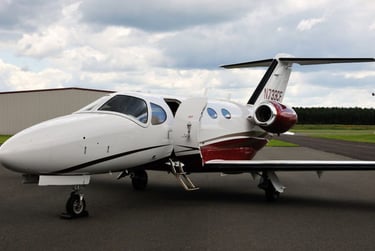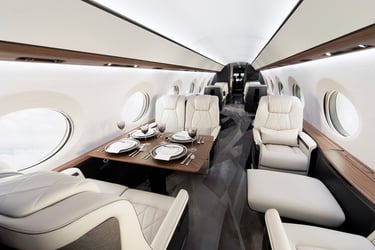TIPS FOR BUYING AIRCRAFT: A GUIDE FOR ELITE INDIVIDUALS AND BUSINESSES
Explore key insights for acquiring an aircraft, from exclusive options for elite individuals to strategic solutions for small air operators and charter companies.
COR AVIATION
1/4/20252 min read


TIPS FOR BUYING AIRCRAFT: A GUIDE FOR ELITE INDIVIDUALS AND BUSINESSES
Purchasing an aircraft is a decision that blends excitement, prestige, and practicality. Whether for private or commercial use, understanding key factors is crucial to making a smart investment. This article provides practical tips for elite individuals seeking their first aircraft and for small airlines and charter companies looking to optimize their fleet.
1. Tips for Elite Individuals
For those seeking to purchase a private jet as an extension of their exclusive lifestyle, it is essential to consider:
Purpose of use: Identify whether the aircraft will be used for personal, business, or mixed travel.
Size and range: Evaluate passenger capacity, flight range, and cargo space.
Total budget: Include purchase price, maintenance costs, fuel, crew, and storage.
New vs. used: Consider new aircraft for warranty benefits or pre-owned models with impeccable maintenance records.
Professional guidance: Hire a broker or aviation consultant to guide the purchase and negotiate better terms.
Example: A light jet like the Cessna Citation may be ideal for quick and flexible trips, while a Gulfstream offers luxury and transcontinental range.
CESSNA GULFSTREAM
2. Tips for Small Airlines and Charter Companies
For businesses looking to expand or renew their fleet, aircraft purchases should align with operational and financial goals:
Market analysis: Identify route and passenger demand to select the appropriate type of aircraft.
Cost efficiency: Opt for models that balance low fuel consumption with high capacity.
Financing: Explore leasing, aviation loans, or joint ownership options to minimize financial impact.
Maintenance: Assess operational costs and availability of parts and technical support.
Regulations: Ensure the aircraft complies with local and international standards.
Example: A charter company operating short routes may benefit from turboprops like the Beechcraft King Air, while a regional airline might consider an Embraer E-Jet for its efficiency and capacity.
3. Universal Factors to Consider
Regardless of the type of buyer, there are aspects everyone should consider:
Aircraft history: For pre-owned aircraft, review maintenance history, accidents, and modifications.
Technical audits: Hire a specialist to inspect the aircraft before purchase.
Hangar location: Ensure adequate storage and maintenance facilities are available.
Aviation insurance: Compare coverage options to protect the investment.
Resale value: Choose models with a strong reputation that retain long-term value.
Conclusion
Buying an aircraft is a significant investment that requires planning and specialized advice. Whether you’re seeking a private jet for your lifestyle or expanding a commercial fleet, following these tips will help you make an informed decision and maximize the value of your investment.




We Empower Aviation in Mexico & U.S.A.
CONTAC US
+52 56 66 11 89 11
© 2024. All rights reserved.


